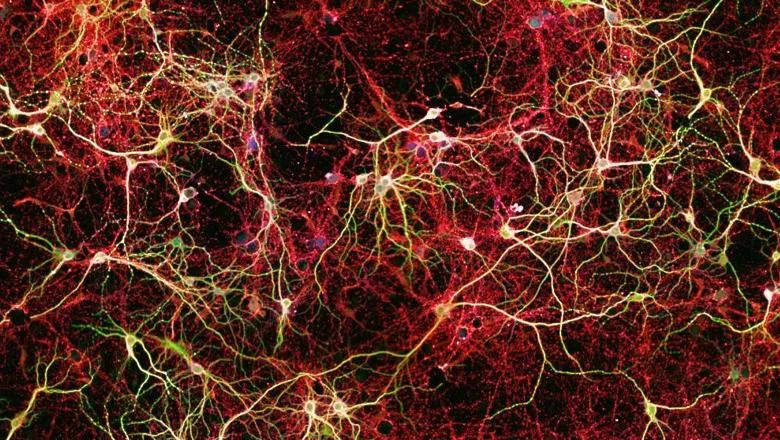These studies are rare and powerful as we have the unique opportunity to apply cutting-edge statistical methods to get a snapshot of different biological systems, how they connect to each other, and how they link with Alzheimer’s Disease."
Dr Petroula Proitsi, the co-lead of this study and Alzheimer's Research UK Senior Research Fellow from King's College London
16 February 2023
Big data initiative discovers new causal pathways in Alzheimer's
The study used a large European cohort to discover new molecules associated to Alzheimer’s, revealing new targets for therapy

A new study, published today in Alzheimer’s & Dementia: The Journal of the Alzheimer’s Association, analysed biological samples from hundreds of individuals from a European study. Researchers looked at the biological information at various levels – genes, proteins, metabolites, cognitive ability, clinical diagnosis and whether participants developed Alzheimer’s disease.
The study examined the ATN framework, a new way to classify Alzheimer’s based on biomarkers of amyloid pathology (A), tau pathology (T), and neurodegeneration (N). These three markers, however, only partially explains the disease’s complex pathophysiology. This study looks at how the interplay between ATN changes, genetic factors and other molecular changes affects the disease progression.
Using data science, they analysed clusters of hundreds of proteins and small molecules (such as metabolites) which are affected by the disease. The study looked at these proteins and small molecules as a group rather than individually, producing a more accurate view of how they interact. They mapped the clustering against the ATN network and against clinical data to determine how the biological markers differ throughout different disease stages.
The authors also used a statistical method to determine whether the molecules identified are on the causal or the resulting pathways of Alzheimer’s pathology. They found that a protein called PCSK7 was causally linked to Alzheimer’s. This finding has great potential as a therapy target as PCSK7 is found in a region that may be responsible for memory impairment.
They also found that a protein called RCN2 and molecules called sphingomyelins are changed in Alzheimer’s. These associations seem to be driven by the APOE gene, the most prevalent genetic risk factor for Alzheimer’s. These changes highlight a possible vascular component in Alzheimer’s, bringing an important shared mechanism between vascular disease and dementia that is worth investigating.
Dr Cristina Legido-Quigley, the co-lead author based at Steno Diabetes Center in Copenhagen and Faculty of Life Sciences & Medicine at King’s College London, said “The next step is to find drugs that target the PCSK7 pathway in the brain. If we're successful in doing that, we may be able to slow down or even stop the progression of cognitive problems."
Shi, L, Xu, J, Green, R, et al. Multiomics profiling of human plasma and cerebrospinal fluid reveals ATN-derived networks and highlights causal links in Alzheimer's disease. Alzheimer's Dement. 2023; 1- 15.
For more information, please contact Annora Thoeng (School of Neuroscience Senior Communications and Engagement Officer)
